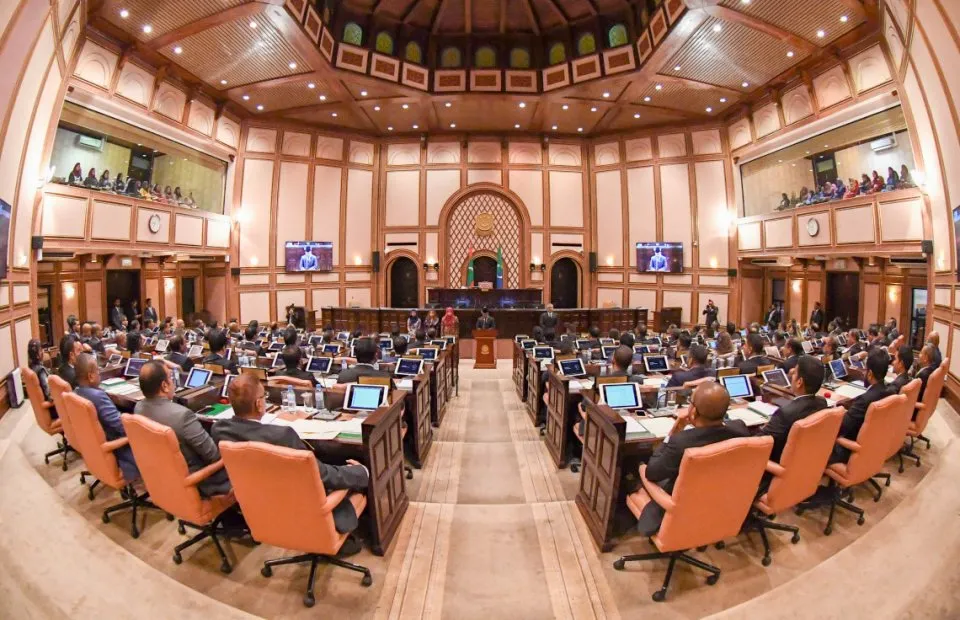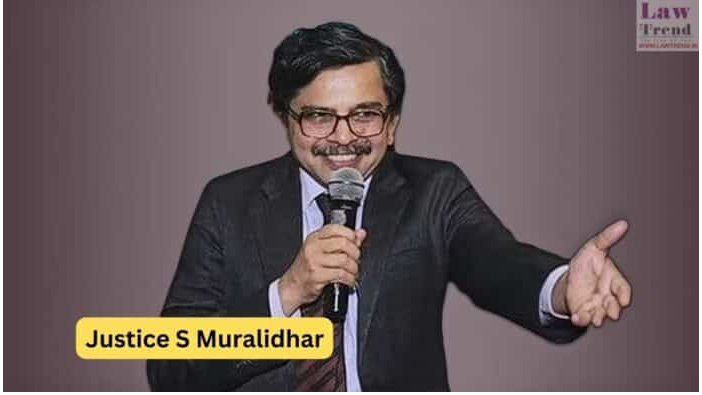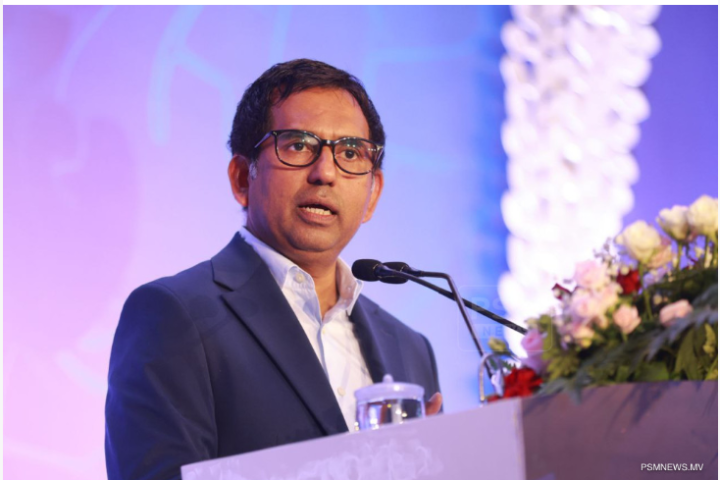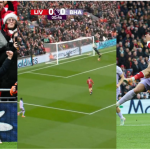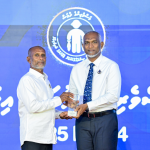MALÉ, Maldives — February in the Maldives is a gift wrapped in the whispers of the Iruvai monsoon. As gentle winds journey westward from the Indian Ocean, brushing past Sri Lanka and India, they shape a season of tranquility. The currents calm, the skies clear, and the air carries the crisp, dry signature of one of the most idyllic months of the year.
Yet, while the currents and skies settle into their serene February rhythm, the nation’s political waters churn with turbulence. February has long been a month of unrest in the Maldives — a time when those in power remain on high alert. The calm seas belie the storms brewing in parliament chambers and city squares.
This time, however, President Dr. Mohammed Muizzu, completing his first year in office, refused to wait for February’s political storms to strike. True to his engineer’s instincts, he anticipated the currents and meticulously planned his course.
It all began in the second week of November.
Whispers circulated that an independent member of Parliament was preparing to approach the High Court to challenge the Anti-Defection Act — a thorny issue in Maldivian politics.
Historically, anti-defection disputes have stirred chaos, with reports of lucrative deals to sway MPs and dramatic scenes of the Maldives National Defence Force storming Parliament, removing MPs forcibly, and holding their ground in the chamber. Adding to the tension, rumors spread of a judge meeting with a high-profile individual.
Amid this intrigue, on Nov. 17, the Judicial Service Commission issued a controversial directive. The Chief Justice, the Chief Justice of the High Court and other overseeing judges would now need to seek the commission’s permission before leaving the country or even taking internal trips to resorts. Critics pointed out a glaring contradiction: while the Constitution guarantees separation of powers, this directive appeared to blur the lines.
The timing raised eyebrows. Just seven days earlier, during the Maldives’ Republic Day celebrations, Mr. Muizzu had assured a “free hand” in judicial matters. Yet this directive seemed to suggest otherwise.
The challenge to the Anti-Defection Act was formally filed on Nov. 18. The ruling party’s response was swift; by Nov. 20, they had pushed through a constitutional amendment mandating that MPs who cross the floor lose their parliamentary seats.
The legislation, proposed by Mohamed Shahid, the governing party’s MP for Hulhudhoo constituency, passed with 78 members of the ruling coalition voting in favor. All 13 MPs from the opposition Maldivian Democratic Party opposed it.
Former President Maumoon Abdul Gayoom, widely regarded as the Maldives’ most senior politician, questioned the unprecedented pace on X: “Constitutional amendment passed in 6 hours – world record?”
The entire process — including debates and committee review — concluded within a single day.
When Meekail Naseem, the MDP MP for Galolhu North, suggested letting constituents decide through a vote whether their MP should retain their seat after a party dismissal, the ruling party, leveraging its two-thirds majority, dismissed all opposition amendments.
“Members of Parliament should not be commodities to be bought and sold,” said Ahmed Nazim, the Deputy Speaker. “Otherwise, the people cannot bring about the desired development.”
The constitutional changes went beyond party defection rules. They raised the threshold for modifying the country’s boundaries to a three-fourths majority, required parliamentary approval for any foreign military presence, expanded presidential powers in development planning, and mandated a public referendum for changes to unalterable constitutional provisions.
In a telling sequence of events, President Muizzu ratified the changes immediately after the evening vote and departed for a private trip to Britain.
The timing — rapid parliamentary passage, immediate presidential ratification, and a well-timed departure — suggested meticulous planning rather than coincidence.
For a nation where February political tensions have become almost seasonal, the president’s calculated sequence of moves appears designed to neutralize potential upheaval well in advance. Whether these changes will truly calm the Maldives’ political waters remains to be seen, but President Muizzu has clearly demonstrated his intent to stay several steps ahead of any brewing storm.
